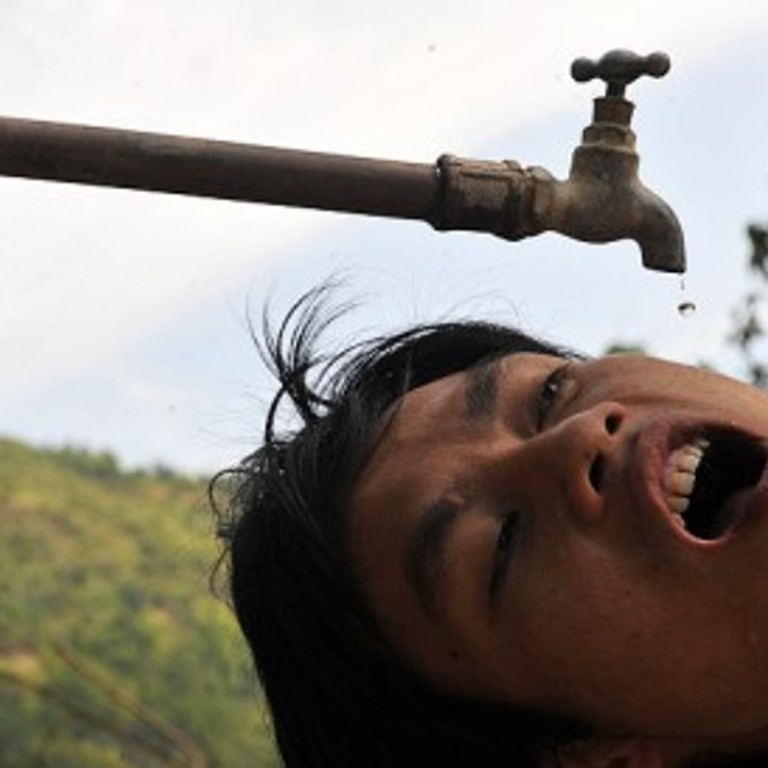
That sinking feeling: ‘superbugs’ may be multiplying in China’s tap water due to world-low hygiene standards, scientists say
Low chlorine levels create breeding ground for genetic exchanges at a microscopic level, allowing harmful germs to pass their drug-resistant genes on to relatively harmless bacteria, which increases the risk of deadly pandemic
Tap water in China not only upsets stomach but tends to breed and spread “superbugs” due to poor disinfection, according to a new study by researchers on the mainland.
Scientists have discovered large colonies of bacteria including pathogens in the drinking water supply system of most Chinese cities in recent years. At times, entire pipelines have even become blocked by the biomass of microorganisms growing inside the pipe walls, media reports claim.
As various kinds of microorganisms are left to their own devices, they can recombine to form harder-to-combat species. Genetic fragments from one kind of “dead” bacteria can also become absorbed by another kind after drifting in water for long periods of time - thus posing even more of a threat.
Known as a horizontal gene transfer (HGT), this kind of genetic exchange at a microscopic level allows harmful germs like superbugs to pass their drug-resistant genes on to relatively harmless bacteria, which increases the risk of deadly pandemic, experts say.
A research team led by Professor Yu Xin found that the risk of HGT occurring in drinking water systems not properly treated with chlorine was high - and especially so in China.
Chlorine is a cheap but effective disinfectant that has been used in urban water supplies since the early 19th century. The World Health Organization requires each litre of tap water must contain at least 0.5 mg of chlorine to ensure it is safe for public consumption.
But companies in China that supply water can get away using just 10 per cent of this due to the nation’s much less stringent regulations. Chinese law stipulates that each litre of water must contain at least 0.05 mg of chlorine - the lowest level worldwide.
In contrast, the US-based Centers for Disease Control and Prevention (CDC) recommends at least 2mg - four times higher than the WHO’s minimum requirement.
The problem with China’s lax approach is that if the doses dip below 0.2 mg per litre - still much higher than China’s bottom threshold - it is possible for different species of bacteria to come together to produce even more viral strains, Yu’s team found.
“But a dosage of 0.3 – 0.5 mg/l chlorine induced a decrease in conjugative (gene) transfer to…below detection limit,” the team wrote in the paper, which was published in the latest issue of the journal Water Research.
Yu, who works at the Chinese Academy of Sciences’ Institute of Urban Environment in Xiamen, in southeast China’s Fujian province, suggested the chlorine level in tap water should be no lower than 0.3 mg per litre to decrease the risk of HGT leading to antibiotic-resistant genes.
This is equivalent to six times the level currently set by the Chinese government. Yu and his colleagues said the issue is a pressing concern that the public should be aware of.
But it is unlikely the government will increase the chlorine content of tap water anytime soon because Chinese consumers dislike the chemical odour, according to a water scientist in the capital.
It is especially pungent in green or black tea - the most popular drinks in the country.
According to the Water Supplies Department of Hong Kong, whether tap water at home is potable depends on “the condition of maintenance of inside service of the building”.
On the mainland, where the situation is more dire, the central authorities must take the superbug threat seriously as people can potentially become infected when using tap water to brush their teeth, wash fruit - or simply from taking a shower, the Beijing-based scientist said.

